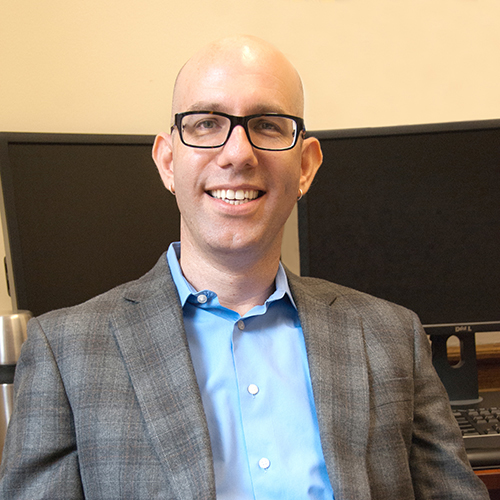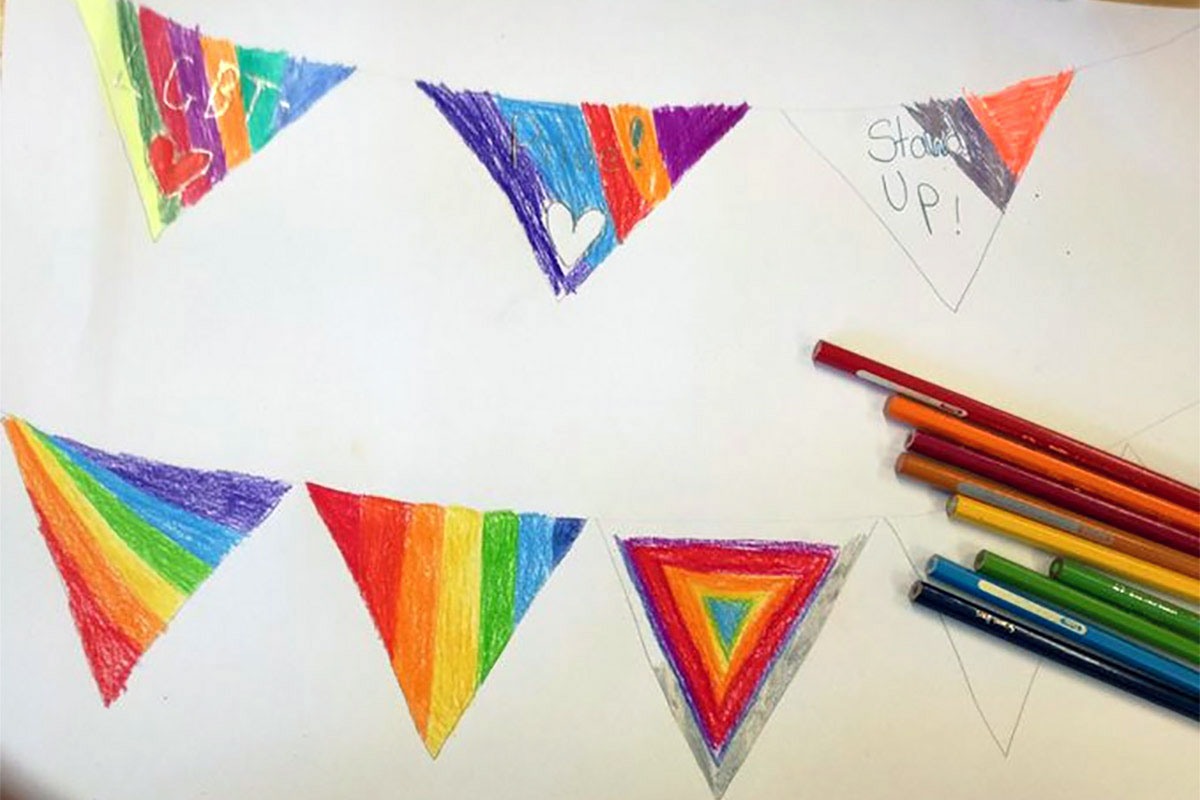Ireland legalized same-sex marriage four years ago, but a recent survey led by Teachers College’s Oren Pizmony-Levy, Associate Professor of International & Comparative Education, suggests that the Irish education system may not have caught up with the law or public sentiment. The survey, released November 12, shows that nearly three-quarters of LGBT+ students in Ireland feel unsafe at school.
[Read about TC students who helped with the survey.]
The Ireland study – called the 2019 School Climate Survey – was sponsored by the Global Observatory of LGBT+ Rights and Education, a research partnership between TC and non-government organizations (NGOs) that are documenting the experience of LGBT+ students in schools around the world. The Global Observatory previously released survey results in Belgium, Iceland, Italy, Malta, Netherlands, and Portugal. Reports on Israel and Mongolia are scheduled for release in 2020. The surveys were conducted by Pizmony-Levy and his students in the International & Comparative Education program, who adapted them from an instrument designed by GLSEN (Gay, Lesbian and Straight Education Network), a U.S.-based NGO.
“We do find patterns and similarities across countries,” Pizmony-Levy says. “Most importantly, we find that (a) direct victimization may lead to less welcoming schools and more negative educational outcomes for LGBT students, including lower aspirations, higher absenteeism, and a lower sense of belonging, and (b) school-based resources, such as supportive school personnel and LGBT-inclusive curricula, may help create a more positive school environment for LGBT students (with LGBT students reporting more positive feelings about their school and their education).

Oren Pizmony-Levy, Associate Professor of International & Comparative Education (Photo: TC Archives)
The Ireland findings indicate that 73 percent of LGBT+ students feel unsafe at school. Some 77 percent of LGBT+ students said they have experienced verbal harassment (name-calling or being threatened), 38 percent reported physical harassment (being shoved or pushed), and 11 percent said they had been subjected to physical assault (punched, kicked or injured with a weapon) because of their sexual orientation, gender or gender expression.
While 68 percent of LGBT+ students surveyed in Ireland stated they hear anti-LGBT+ remarks from other students, 48 percent reported hearing homophobic remarks from teachers and staff members, and 55 percent reported hearing transphobic remarks from those same groups. As a result of feeling unsafe and unaccepted at school, LGBTI+ students are 27 percent more likely to miss school, and 8 percent less likely to pursue higher or post-secondary education, the study found.
The Ireland findings indicate – even with Ireland’s marriage equality law in place since 2015 – “the intense discrimination, harassment, isolation and stigma that LGBT+ students experience in Ireland,” said Moninne Griffith, CEO of BeLonG To Youth Services, Pizmony-Levy’s NGO partner in Ireland. Griffith called on Joe McHugh, Ireland’s Minister for Education, “to take immediate action and prioritize the safety and wellbeing of LGBT+ students who are seriously at risk.”
Pizmony-Levy adds that the “findings show that, similar to other countries, schools in Ireland have much work to do. Documenting the experience of LGBT+ students is a critical first step toward ensuring that schools are welcoming to all students.”
[The] findings show that, similar to other countries, schools in Ireland have much work to do. Documenting the experience of LGBT+ students is a critical first step toward ensuring that schools are welcoming to all students. —Oren Pizmony-Levy
“While I understand the expectation of my colleagues in Ireland to find that schools are safe environments for LGBT+ students, I don’t think schools are responding so quickly to laws, such as same-sex marriage,” he adds. “Educational change takes time and requires concerted efforts from all stakeholders. This and the central role that religion plays in Irish schools mean that there is much work to do, and this work need to be strategic and systematic. My hope is that in the next administration of the survey (no less than four years from now) we will see positive changes in different indicators.”
The 2019 School Climate Survey, conducted online from May to August 2019, is the largest research sample ever of LGBT+ young people in schools in Ireland. The final sample consisted of a total of 788 students between the ages of 13 and 20, from all 26 counties in the Republic of Ireland and all four provinces. Half of the sample were female and about one-fifth (21.9 percent) were male, with the rest choosing other gender identities (trans 12.4 percent and non-binary 7.8 percent). Two-fifths (45.2 percent) of the sample identified as bisexual; one-quarter as gay; and one-fifth as lesbian (26.4 percent and 21.1 percent, respectively). The rest identified as queer (17.1 percent), pansexual (15.4 percent) or questioning (12.1 percent).
Pizmony-Levy is hopeful that the research itself could positively influence the climate for LGBT+ students.
“Our partners tell us that these reports are useful for raising awareness and for advocacy. In Israel, for example, past reports informed the legislation of the Students’ Right Act to prevent discrimination based on sexual orientation and gender identity. In the next step, my team is combining data from multiple countries to explore in a systematic way differences and similarities across measures of school climate. This analysis will help us to assess a central question: To what extent does the social-legal status of LGBT+ people shape students’ experiences in school?”
